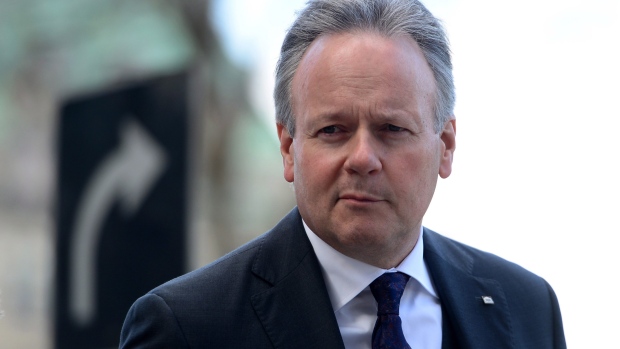Dec 14, 2017
Bank of Canada more confident less stimulus needed: Poloz
, Reuters

The Bank of Canada is increasingly confident the economy will need less stimulus over time, Governor Stephen Poloz said on Thursday in an end-of-year speech that boosted the Canadian dollar and raised expectations of another rate hike early in 2018.
Poloz said the economy was in a sweet spot after making "tremendous" progress over the last year, with early signs that a long-awaited rotation to higher exports and business investment is happening as the housing boom cools.
The economy "is close to reaching its full potential. We are very encouraged by this, and we are growing increasingly confident that the economy will need less monetary stimulus over time," Poloz said, addressing the Canadian Club in Toronto.
While the central bank held rates steady last week, Poloz acknowledged that current monetary policy "clearly remains quite stimulative" despite rate hikes in July and September, fueling market bets the next hike will come in the first quarter of 2018. The next policy meeting is Jan. 17.
WEIGH IN
What should keep Bank of Canada Governor Stephen Poloz up at night?
"He was a bit all over the place, but the slight tilt is that he is not as concerned as we thought previously, so yields are quite significantly higher, the loonie is up, January is almost a 35 per cent probability right now," said Fred Demers, chief Canada macro strategist at TD Securities.
"So definitely, the next rate hike is not very far away — whether it is January or March," Demers added.
The Canadian dollar rallied more than one per cent on the remarks.
While a mechanical approach to setting policy would suggest rates should already be higher, the bank still sees signs of ongoing but diminishing slack in the labour market, Poloz said.
Canada's economy is near capacity and growth is forecast to continue above potential, posing an upside risk to the inflation forecast, he said.
At the same time, labour market slack poses a downside risk, Poloz said, reiterating the bank's oft-repeated concern that the job market is not as strong as employment growth and a steadily declining unemployment rate would suggest.
"Wages, despite the fact that they have upticked, are still well below their typical level at this stage of the business cycle, so we know there is slack underneath there," he said at a news conference after the speech.